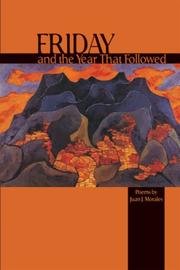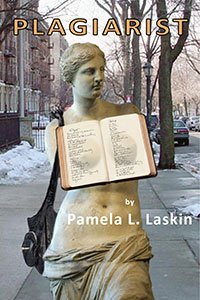nycBigCityLit.com the rivers of it, abridged


Reviews
Fall 2013 / Spring 2014
BOUNCING THE RUBBLE: THE UNEARTHING OF JUAN J. MORALES:
Friday and the Year That Followed

Friday and the Year
That Followed
Bedbug Press, 2006; 84 pages; $13.95
ISBN 13 9780977197354, paper
Reviewed by George Drew
During the Cold War one strategic principle was to nuke the enemy, then to follow up with another hit, just to be sure. This was referred to as bouncing the rubble, an absurdity worthy of Sartre's existentialism. Madness? Absolutely. Bouncing the rubble was all about obliteration, or to be more exact, obliterating the already obliterated. Contrarily, as I intend its usage in this essay, it is all about the resurrection of a first book by a generally unknown poet. That is, it is about bouncing the rubble, not to obliterate an obliteration, but to expose what lies hidden underneath. Read Review
Plagiarist
Pamela L. Laskin

Plagarist
Dos Madres Press, 2012; 64 pages; $15.00
ISBN-10: 193367573X, paper
Reviewed by Melinda Thomsen
What I enjoyed the most about Pamela L. Laskin's latest collection is how it expertly teeters on the edge, in some cases a very narrow edge, between what we are and what we want to be. These poems reflect on the passage from being a frustrated plagiarist to one who is content with her unique voice. I know many people scoff at the writing advice, "Find your voice." It is an extremely frustrating imperative, but it is something all writers face at some time. What if you feel like the poet, "Consonants click in my consciousness/ like castanets, / these are mine, but I don't want them…?" We yearn to become plagiarists who desire "the slow steady sound / of a horse's heart-beat / luscious land / I've never traveled to…" For Laskin, Plagiarist explores this yearning through contemplations that use startling language and play themselves out within the confines of one page. Laskin's poems dive in and out with lines that rarely have more than three beats, poems that stay to one page and breathe life into each moment she recalls. In the end, she finds this journey results in the discovery that those "castanets" are very cool and precious, indeed. Read Review